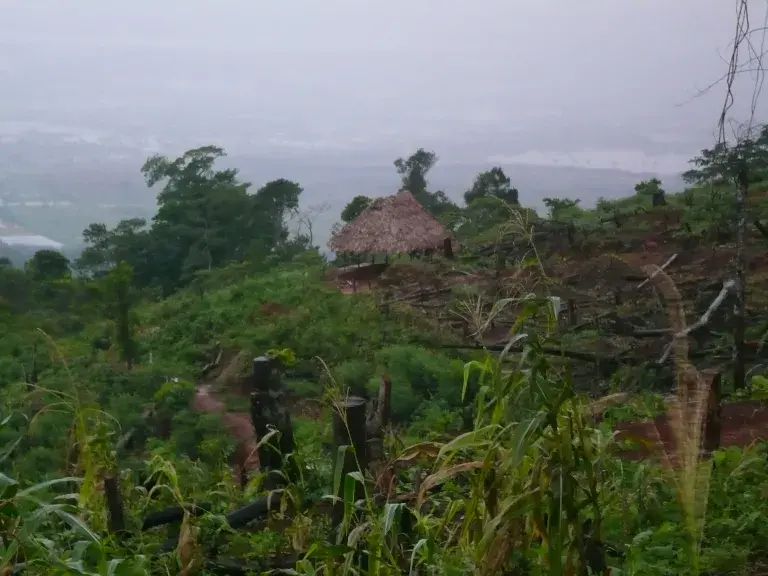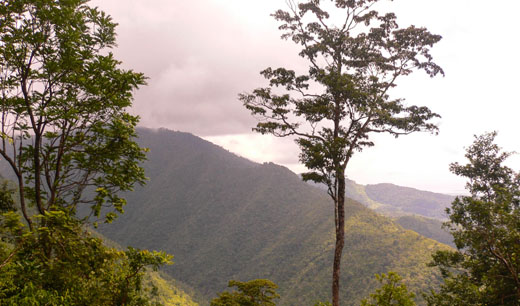

Agua Caliente, a Q’eqchi’ Maya community in Guatemala, is one step closer to having their case heard by an international human rights body. In February 2015, the Inter-American Commission on Human Rights transferred Agua Caliente’s petition to Guatemala and set a three-month deadline to receive its responsive brief. The move by the Commission formally launched the first phase of the procedure, during which the petition’s admissibility requirements will be fully discussed.
“In procedural terms, this is a major step forward”, said Leonardo A. Crippa, a Center Senior Attorney. The admissibility phase marks the beginning of a considerable legal discussion between the government of Guatemala and the Center, which serves as legal counsel representing Agua Caliente in the international arena. The merits of the case will be addressed in the second phase of the process.
For over 40 years, Agua Caliente has used legal means to secure recognition of their land rights, faced serious threats and violations to their human rights, including numerous attempts to evict the community from their traditional lands to make way for nickel mining. Agua Caliente has never resorted to protests or blocked roads to make their demands.
In February 2011, Agua Caliente won a major victory when a precedent setting decision by Guatemala’s Constitutional Court recognized the community’s collective property rights to its lands and asked governmental agencies to issue a title recognizing said rights. This meant that the mining permits and attempted evictions were in violation of the community's land rights. Guatemala , in essence, ignored this historic ruling by not enforcing it. Indeed, despite the court ruling, Agua Caliente has still not received its land title yet.
Agua Caliente is a small Q’eqchi’ Maya Community located in the municipality of El Estor, department of Izabal, Guatemala. Agua Caliente is composed of about 76 families, and the majority of the population are children and elders. Almost all community members are monolingual; that is, they only speak their native language: Q’eqchi’ Maya.
Seeking international protection is now part of Agua Caliente’s pursuit of justice. In August 2011, Agua Caliente filed a petition with the Inter-American Commission on Human Rights against Guatemala, because its actions and omissions violated the community’s land rights, which are protected by the American Convention on Human Rights. The Commission is competent to hear this case because Guatemala has ratified this human rights treaty. Because of the particular nature of Agua Caliente’s petition, last year the Commission granted a per saltum to process the petition right away despite a considerable case backlog.
The Commission’s transfer of the petition to Guatemala is an important development in the procedure, and it arrives at a critical time. With the reactivation of mining activities, violence has escalated in El Estor. Q’eqchi’ leaders, such as Rodrigo Tot, President of the Agua Caliente Community, have been targets for threats and intimidation by the company’s security forces.
“The Commission’s decision to get started with the legal discussion of our petition will pave the way to confirm that the state-issued mining permits and the company’s mining activities violate the land rights of the Q’eqchi’ people, especially of my community,” said Tot.
“The backlog issue has been overcome, and there is no way to go backwards in this case. The time has arrived to start discussing our legal concerns on the state-business connection around the Fenix mining project from an international human rights law viewpoint,” said Crippa.
